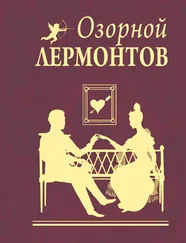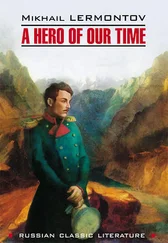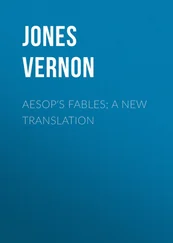The first day I spent there was very boring. The next day a cart rolled into the courtyard in the early morning… Ah! Maxim Maximych!… We greeted each other like old friends. I invited him to stay in my quarters. He didn’t stand on ceremony, and he even clapped me on the shoulder and twisted his mouth into the semblance of a smile. What an eccentric!
Maxim Maximych possessed a deep knowledge of the culinary arts: he roasted a pheasant amazingly well, and successfully added a cucumber brine to it, and I must admit that without him there would have only been dry food left to me. A bottle of Kakhetian wine helped us to forget the modest number of dishes, which amounted to all of one, and having smoked a pipe, we settled in—I sat by the window and he by the heated stove, because the day had been damp and cold. We were silent. What was there to talk about?… He had already told me everything that was of interest about himself, and I had nothing to tell. I looked through the window. A multitude of low dwellings twinkled among the trees, scattered along the banks of the Terek River, which runs more and more widely here; and in the distance a toothy wall of mountains shined blue, and from behind them the peak of Mount Kazbek emerged in its white cardinal’s hat. I said farewell to them in my thoughts and I was sorry to do so…
We sat like that for a long time. The sun had hidden itself behind the cold peaks, and a whitish mist had begun to disperse in the valley, when the sound of a harness bell and the shouts of cart drivers resounded in the street. Several carts of dirty-looking Armenians drove into the courtyard of the inn; an empty carriage arrived behind them, with an easy gait, a comfortable construction and dandified appearance—all of which gave it some sort of stamp of foreignness. A man with a large mustache walked behind it, wearing a dolman, [1] dolman: A Hungarian jacket.
looking rather well-dressed for a lackey. But it was impossible to mistake his position, seeing the rakish manner with which he shook the ash from his pipe and shouted at the coachman. He was clearly the spoiled servant of a lazy master—a sort of Russian Figaro.
“Tell me, my good man,” I cried to him from the window, “is this the Opportunity that has arrived?”
He looked at me impertinently, adjusted his tie and turned around. There was an Armenian walking next to him, smiling, who replied for him that the Opportunity had indeed arrived and tomorrow morning it would set off back again.
“Thank God!” said Maxim Maximych, walking up to the window at that moment. “What a marvelous carriage!” he added. “There’s probably some official heading to an inquiry in Tiflis. But he obviously doesn’t know our hills! No, he can’t be serious, the good man—these hills aren’t kind—they’ll give a good jolting even to an English carriage!”
“But who do you think he is? Let’s go and find out…” We went out into the corridor. At the end of the corridor, the door to a side room was open. The lackey and the coachman were dragging valises inside.
“Listen, my friend,” the staff captain asked him, “whose is this marvelous carriage, eh? It’s an excellent carriage!”
The lackey, not turning around, mumbled something to himself as he unfastened the valise. Maxim Maximych became angry; he touched the rude man on the shoulder and said:
“I’m talking to you, good man.”
“Whose carriage?… It’s my master’s…”
“And who is your master?”
“Pechorin…”
“Really? Really? Pechorin?… Oh good God!… Did he perhaps once serve in the Caucasus?” exclaimed Maxim Maximych, tugging at my sleeve. Joy was sparkling in his eyes.
“Yes, he did, I’d guess—but I haven’t been with him for long.”
“Well there you go! There it is! Grigory Alexandrovich?… That’s his name, right?… Your master and I were friends,” he added, slapping the lackey fraternally on the shoulder so hard that it caused the man to stagger…
“If you please, sir, you are getting in my way,” said the man, frowning.
“Well, look at that!… Do you understand? Your master and I were once the best of friends, we lived together… So, where is the man himself?”
The servant declared that Pechorin had stopped to dine and spend the night with Colonel N——.
“Won’t he drop by here this evening?” said Maxim Maximych. “Or will you, good man, be going to him for anything?… If you are, will you tell him that Maxim Maximych is here. Tell him that. He’ll understand… I’ll give you eighty kopeck s for your vodka.”
The lackey assumed a contemptuous demeanor hearing such a modest pledge, but assured Maxim Maximych that he would fulfill his instructions.
“He’ll come running, you’ll see!” Maxim Maximych told me with a triumphant air, “I’ll go to the gate and wait for him… Eh! It’s a shame that I’m not acquainted with N____…”
Maxim Maximych sat in front of the gate on a bench, and I went back to my room. I’ll admit I also awaited the appearance of this Pechorin with a certain amount of impatience, though from the staff captain’s tale I had formed an opinion of him that wasn’t very favorable. But several features of his character seemed remarkable to me. After an hour, one of the veterans brought a boiling samovar and a teapot.
“Maxim Maximych, would you like some tea?” I called to him through the window.
“I thank you, but I don’t really want any.”
“Come now, have some! Look here, it’s late already, and cold.”
“No, it’s fine, thank you.”
“As you like!”
I started drinking my tea alone, and about ten minutes later my old friend came in.
“Indeed, you’re right—it’s a good idea to have some tea. I just kept waiting… his man went to get him a while ago, and it seems something has kept them.”
He quickly drank down a teacup, refused a second and went out again to the gate in some agitation. Clearly the old man was distressed at Pechorin’s negligence, not least because he had recently told me about his friendship with Pechorin, and an hour or so ago he had been sure that Pechorin would come running at the mention of his name.
It was already late and dark when I opened the window again and started calling to Maxim Maximych, saying that it was time to retire. He muttered something between his teeth. I repeated my call and he didn’t reply.
I lay on the divan, wrapped in a greatcoat, and soon dozed off, leaving a candle on the stove-bench. And I would have slept soundly if it had not been for Maxim Maximych, who entered the room when it was already very late and awakened me. He threw his pipe on the table, and started to walk up and down the room, throwing logs into the stove, and finally he lay down, but coughed for a long time, spat a few times, tossed around…
“Have you got fleas perhaps?” I asked.
“Yes, it’s fleas,” he replied, exhaling heavily.
I woke early the next morning. But Maxim Maximych had anticipated me. I found him by the gate, sitting on the bench.
“I have to go to the commandant,” he said, “so please, if Pechorin arrives, send someone to get me…”
I promised. He ran off… as though his limbs had been newly endowed with youthful energy and flexibility.
The morning was cooler, but beautiful. Golden clouds towered over the hills: another row of mountains, made of air. A wide square extended in front of the gate, beyond which a bazaar seethed with people, since it was Sunday. Barefoot Ossetian boys carrying sacks of honeycombs circled around me again and again. I chased them off. I didn’t want anything from them, and I was starting to share the anxieties of the good staff captain.
Читать дальше
Конец ознакомительного отрывка
Купить книгу
![Михаил Лермонтов A Hero of Our Time [New Translation] обложка книги](/books/27671/mihail-lermontov-a-hero-of-our-time-new-translati-cover.webp)










